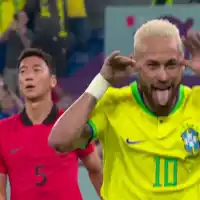Deep Archetype Analysis
The Street Magician thrives on freedom. You dance past defenders, invent combinations, and deliver assists in the blink of an eye. Your creativity is fuel for teammates and fear for opponents. To keep it lethal, anchor your flair to repeatable cues—when to slow tempo, when to accelerate, and when to improvise.
Strengths
- Elastic dribbling and samba footwork
- No-look passing that shreds defensive shape
- Joyful charisma that lifts the locker room
- Free-kick and futsal-inspired set-piece craft
- Tempo control through flair and rhythm shifts
Growth Areas
- Decision-making in deeper build-up zones
- Maintaining defensive discipline without the ball
- Load management to protect ankles and knees
- Balancing showmanship with relentless finishing
Ideal Roles & Systems
- Free 10 in a 4-2-3-1 with roaming license
- Left-sided creator in 4-3-3 connecting midfield and attack
- Futsal-inspired false nine in smaller-sided systems
- Set-piece specialist unlocking frozen defenses
Leadership & Team Dynamics
- Lead through joy—celebrate teammates' runs and risks
- Set training tone with skill challenges and high standards
- Mentor younger players on creativity and resilience
- Use charisma to calm pressure moments and inspire belief
High-Impact Training Priorities
- Flair stations: elasticos, flip-flaps, spins finished with a shot
- No-look passing ladders with teammates and mannequins
- Futsal 3v3 grids to sharpen tempo and first-touch
- Creative finishing: chips, scoop lob, outside-of-boot bends
- Balance work—core, hips, and groin to sustain agility
In-depth: The Street Magician
You weaponize expression. Your game confuses markers because rhythm, angles, and timing never repeat. Build structure behind the magic: study when defenders overcommit, log which moves create space, and pair artistry with quick wall passes so even the wildest idea ends in a shot or assist.
30-Day Samba Creativity Plan
A month of delight-driven training to sharpen flair and decision making while protecting your body.
- Week 1 — Technique Playground: Daily juggling routines, freestyle combos, and tight-box 1v1 ladders.
- Week 2 — Vision & Passing: No-look patterns, rondos with deception rules, and first-time assists under time pressure.
- Week 3 — Expressive Finishing: Chips, rabona, outside-foot curlers, plus futsal-inspired finishing circuits.
- Week 4 — Game Transfer: 5v5 futsal scrimmages, highlight review, and scenario-based creativity challenges.
Track creativity impact: key passes created, defenders beaten, and conversion rate from creative actions to final-third chances.
Samba False 10
Hover between lines, receive on the half-turn, and burst into diagonal dribbles that trigger overlaps and disguised through balls.
Expressive 4-3-3 Pivot
Start wide, drift central, and combine futsal touches with quick give-and-go exchanges to drag defenders out of their zones.
Resources & Drills
- Flair combo playlist with progressive difficulty levels
- Creative passing bingo card with disguised delivery targets
- Futsal conditioning script to build samba tempo endurance
Frequently Asked Questions
A: Tie every move to an end product. Drill combinations that end with a shot or assist and review film to confirm impact.
Q: What if defenders foul me constantly?A: Build strength, rehearse contact balance drills, and use quick release passes so over-aggressive defenders get exposed.
Q: How do I stay disciplined defensively?A: Set a rule—immediately press after you lose the ball. Pair flair with relentless counter-pressing standards to stay trusted.



